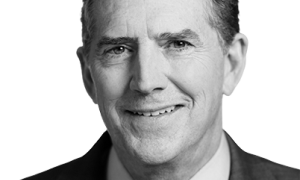Peace and prosperity in Latin America are important to the United States. Not only do we wish our fellow republics well, but their stability is in our national interest, too. That’s why it is worrisome that the Obama administration continues to squander freedom’s hard gains in a region facing many challenges.
Take Central America. In 1980s it was a battleground between freedom and communism. Thanks to Ronald Reagan, freedom won. But what was won at the ballot box then may be in jeopardy soon.
Two important upcoming presidential elections — Honduras this month and El Salvador next February — will define the region’s immediate future. Strongmen in the tradition of Hugo Chávez run both countries. A victory for Chavismo in Central America would be as disastrous for the region as it has been for the Venezuelans themselves.
In Honduras, disgraced former President Manuel Zelaya, a Chávez disciple, has mounted a dangerous comeback. Barred from seeking office himself, he has put forward his own wife, Xiomara Castro, who has never held elected office.
Four years ago, I led the effort in Washington to stand in solidarity with the Honduran people when they ousted Zelaya for his illegal attempt to rewrite the Honduran Constitution in his favor.
Sadly, I had to fight our own State Department to do so. Secretary of State Hillary Clinton sided with the anti-American Zelaya and against the institutions of Honduras — its Congress, its Supreme Court, even its Constitution — in opposing the removal of Zelaya. Once again, the Obama administration was ignoring our traditional friends overseas and sticking up for our enemies.
Alas, Zelaya again will be calling the shots if his wife is elected. She has made rewriting the constitution the pillar of her campaign.
American interests are at a stake as well. As president, Zelaya opened his country’s borders to drug traffickers who imported loads of cocaine from Venezuela to the United States. According to the U.S. State Department, 87 percent of drugs entering the United States pass through Honduran territory. We cannot afford a Zelaya redux.
In El Salvador, democracy and U.S. security interests are under threat on two fronts. The leading presidential candidate, Vice President Salvador Sánchez Cerén, was once the head of the Marxist FMLN guerrillas. His democratic credentials are dubious at best, and he is no friend of the United States. He celebrated the 9/11 attack on Washington and New York by leading a cheering mob on the streets of San Salvador as it burned the American flag.
And what has the Obama administration done? The Millennium Challenge Corporation, an aid agency which has the secretaries of State and Treasury, John Kerry and Jacob Lew, on its board, just granted the FMLN government $277 million in aid.
Sánchez Cerén’s radical tendencies have been held in check by the more moderate President Mauricio Funes. But with President Funes’ term expiring, the party’s hard-line radicals believe it is their time.
In Colombia, “peace talks” between the government of President Juan Manuel Santos and the Marxist/narco-trafficking, guerrilla group FARC are taking place in Havana. Its location in one of the world’s last totalitarian police states should give an indication of how that process is going.
The guerrillas are on the verge of gaining land redistribution and political legitimacy, something they couldn’t get on the battlefield. Under the last president, Alvaro Uribe, the FARC experienced major losses, and Colombia became a much safer country. Small wonder that the government has just this week uncovered a FARC plan to assassinate Uribe, a staunch critic of the peace talks.
And where is the U.S. administration in all of this? To the dismay of pro-Americans such as Uribe, Vice President Biden has called the Havana process “serious and well-designed.”
Finally, in Chile, an economic success and the best Latin American performer in The Heritage Foundation’s Index of Economic Freedom, socialist Michelle Bachelet is poised to win elections next month. Her platform? Raising taxes on Chileans and Chilean companies. Not surprisingly, President Obama has praised her as one of Latin America’s “most compelling leaders.”
It is not our role to pick and choose candidates in foreign elections. But we do have a responsibility to help our democratic friends in the region resist attacks on their democratic institutions. Under Obama, the United States is not just ignoring our friends, but seems to be actively supporting our enemies. How could we have invested so much blood and treasure in other parts of the world and now work to undo freedom’s gains in our hemisphere?
- Jim DeMint, a former U.S. senator from South Carolina, is the president of The Heritage Foundation.
Originally appeared in the Miami Herald.



